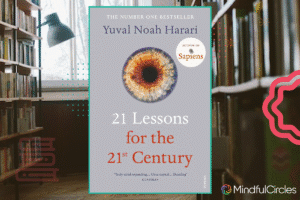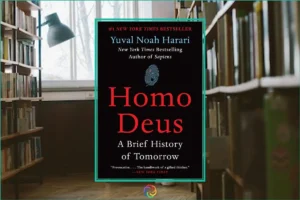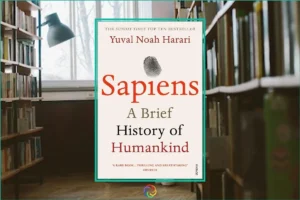
21 Lessons for the 21st Century By Yuval Noah Harari – Book Summary
Introduction: About the Author, the Book, and Its Impact Yuval Noah Harari, an Israeli historian and professor at the Hebrew
Yuval Noah Harari: From Historian to Global Intellectual
Yuval Noah Harari, born on February 24, 1976, in Kiryat Ata, Israel, is a renowned historian, philosopher, and public intellectual. He gained international prominence through his ability to synthesize complex historical, philosophical, and technological subjects into accessible narratives for general audiences. Harari earned his PhD in history from the University of Oxford in 2002, under the supervision of Steven J. Gunn, focusing on medieval military history before shifting toward broader questions about the human condition, evolution, and the future of humanity.
His breakthrough came in 2011 with the publication of “Sapiens: A Brief History of Humankind”. Originally written in Hebrew and later translated into over 60 languages, the book explores how Homo sapiens rose to dominance through cognitive, agricultural, and scientific revolutions. Supported by evolutionary biology, anthropology, and economics, Sapiens presents a macro-history that challenges traditional narratives, arguing, for instance, that the Agricultural Revolution was “history’s biggest fraud.”
Following Sapiens, Harari published “Homo Deus: A Brief History of Tomorrow” (2015), which speculates on the future of humanity given advances in artificial intelligence, biotechnology, and data science. He argues that while humankind once strove for survival, modern societies are increasingly obsessed with achieving divinity—immortality, happiness, and god-like control over life—raising critical ethical and political questions.
In “21 Lessons for the 21st Century” (2018), Harari turns his focus to contemporary issues, tackling nationalism, fake news, education, and the future of work in the age of automation. Unlike his first two books, which took a long-horizon view, this work is a more direct response to present-day socio-political challenges, encouraging critical thinking and global cooperation.
His books have sold over 40 million copies worldwide and have been endorsed by global leaders and influencers including Barack Obama, Bill Gates, and Mark Zuckerberg. Harari is also a frequent speaker at international forums such as the World Economic Forum in Davos and has contributed to publications including The New York Times, The Guardian, and Nature.
In 2019, Harari co-founded Sapienship, a social impact company aimed at promoting global responsibility and tackling urgent challenges through storytelling, education, and partnerships. He has also collaborated with artists and publishers to create a graphic novel adaptation of Sapiens, making his ideas accessible to younger and more diverse audiences.
Among his accolades, Harari has received the Polonsky Prize for Creativity and Originality in the Humanistic Disciplines (twice, in 2009 and 2012), and has been included in prestigious lists like Prospect magazine’s list of top world thinkers. He was also named among the world’s most influential people in various rankings for his impact on global conversations about technology, ethics, and humanity.
Openly gay and living with his husband in a moshav near Jerusalem, Harari meditates daily and has credited Vipassana meditation with helping him develop the mental clarity necessary for his wide-ranging intellectual work.
Harari’s intellectual contributions are characterized by interdisciplinary synthesis, clarity of exposition, and a provocative style that invites both admiration and criticism. His ability to bridge the humanities and technology has made him a crucial voice in 21st-century thought, particularly as societies grapple with the ethical implications of rapid technological change.

Introduction: About the Author, the Book, and Its Impact Yuval Noah Harari, an Israeli historian and professor at the Hebrew

From conquering famine, plague, and war to seeking immortality, happiness, and divinity. About the Author and the Book Yuval Noah

When Yuval Noah Harari’s Sapiens was first published in Hebrew in 2011 and later in English in 2014, it took

